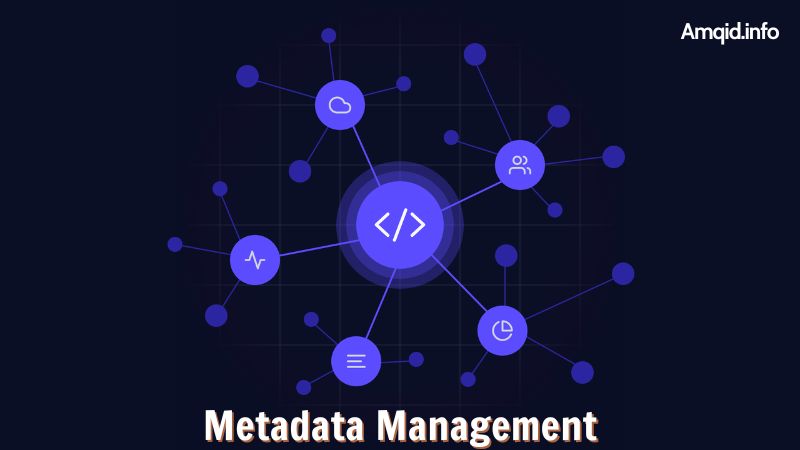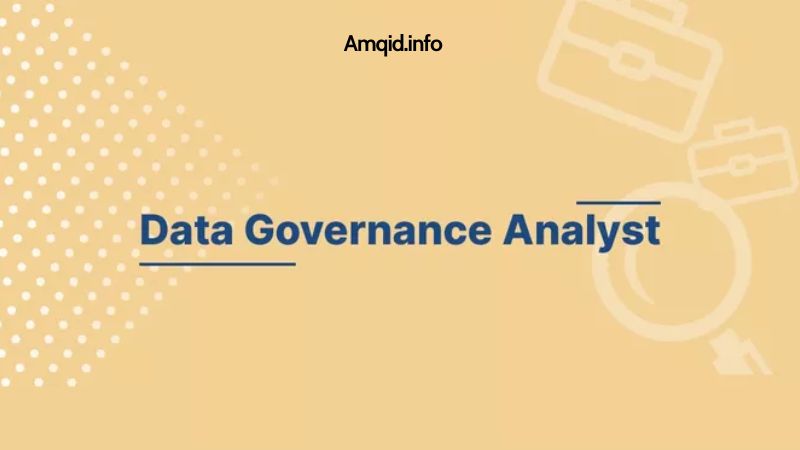In today’s data-driven world, organizations are increasingly recognizing the importance of effective data governance to drive informed decision-making, enhance operational efficiency, and ensure regulatory compliance. At the heart of successful data governance initiatives lies the pivotal role of the data governance analyst. These professionals play a crucial role in developing and implementing strategies to manage, protect, and leverage an organization’s data assets effectively. With Amqid.info explore now.
The Role of the Data Governance Analyst
Policy Development: Establishing the Framework
At the forefront of the data governance analyst’s role is the development of robust policy frameworks. Central to their responsibilities is the creation of comprehensive data governance policies, meticulously outlining protocols for the collection, storage, processing, and access of data within the organizational ecosystem. These meticulously crafted policies serve as the bedrock guiding principles that dictate the ethical and efficient utilization of data assets across diverse business units and departments, ensuring compliance, integrity, and optimal security measures are upheld throughout the organization’s data management processes.

Data Quality Management: Ensuring Accuracy and Consistency
At the core of the data governance analyst’s responsibilities lies the pivotal task of overseeing data quality management. This multifaceted role entails the implementation of meticulous processes and stringent controls aimed at upholding the accuracy, completeness, and consistency of data across its entire lifecycle. Through the establishment of robust data quality standards and the implementation of vigilant monitoring mechanisms, data governance analysts play a crucial role in safeguarding the integrity and reliability of organizational data assets. By ensuring that data meets predefined quality benchmarks, these analysts empower organizations to make informed and strategic business decisions grounded in reliable data insights.
Metadata Management: Providing Context and Insight
Metadata management is another essential aspect of the data governance analyst’s role. They oversee the documentation and management of metadata, which provides valuable context and insights into the organization’s data assets. By maintaining a comprehensive metadata repository, data governance analysts enable stakeholders to better understand and utilize the data available to them.

Data Security and Privacy: Safeguarding Sensitive Information
Data security and privacy are paramount concerns for organizations in an era of increasing cyber threats and stringent regulatory requirements. Data governance analysts play a crucial role in ensuring that data is protected against unauthorized access, breaches, and misuse. By implementing robust security measures and compliance controls, they help mitigate the risks associated with data breaches and ensure that sensitive information remains secure.
Data Stewardship: Fostering Collaboration and Accountability
Collaboration is key to effective data governance, and data governance analysts act as facilitators in bringing together business stakeholders and data owners to define data ownership, responsibilities, and accountability. By fostering collaboration and communication across departments, data governance analysts ensure that data governance policies are aligned with the organization’s strategic objectives and business processes.
Data Lifecycle Management: From Creation to Disposal
Data lifecycle management is another area where data governance analysts excel. They develop strategies for managing data from creation to disposal, including data retention and archiving policies. By establishing clear guidelines for data lifecycle management, data governance analysts ensure that data is managed efficiently and in compliance with regulatory requirements.

Education and Training: Empowering Employees
Education and training are essential components of successful data governance initiatives, and data governance analysts are responsible for providing training and awareness programs to educate employees about data governance policies, procedures, and best practices. By empowering employees with the knowledge and skills they need to adhere to data governance policies, data governance analysts help foster a culture of data stewardship within the organization.
Risk Management: Identifying and Mitigating Risks
Risk management constitutes a fundamental aspect of data governance, with data governance analysts assuming the crucial responsibility of identifying and mitigating risks inherent in data governance processes. From addressing data quality discrepancies and security vulnerabilities to ensuring compliance with regulatory standards, these analysts diligently work to minimize potential risks and safeguard the integrity, confidentiality, and availability of the organization’s data assets, thereby fortifying its resilience against unforeseen challenges and ensuring sustained operational efficiency and trustworthiness.
Compliance Monitoring and Reporting: Ensuring Regulatory Adherence
Compliance monitoring and reporting are critical aspects of data governance, and data governance analysts play a central role in ensuring that organizations comply with regulatory requirements and internal policies. By monitoring data governance activities and generating reports to track performance and identify areas for improvement, data governance analysts provide valuable insights that enable organizations to maintain compliance and continuously enhance their data governance practices.
Conclusion
In conclusion, the role of the data governance analyst is indispensable in today’s data-driven business environment. These professionals serve as the guardians of data integrity, security, and compliance, ensuring that organizations can harness the full potential of their data assets while minimizing risks and maximizing opportunities. With their expertise in policy development, data quality management, metadata management, and risk mitigation, data governance analysts play a vital role in shaping the future of data governance and driving organizational success in the digital age.
